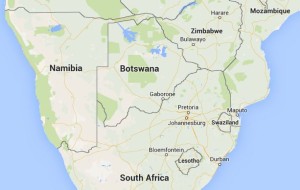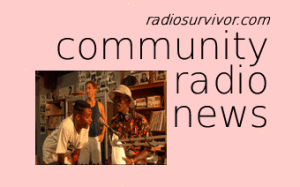 An advisory group to the Parliament of Botswana has unanimously endorsed the establishment of community radio stations in that southern African country to “mitigate communication breakdown between Dikgosi and their communities.” Dikgosi is the plural for Kgosi, a Setswana word for tribal chief. The problem, as the advisory board Ntlo ya Dikgosi sees it, is that Botswana’s state media system doesn’t seem to be reaching the population as effectively as it could, especially that portion who do not speak one of Botswana’s principal languages.
An advisory group to the Parliament of Botswana has unanimously endorsed the establishment of community radio stations in that southern African country to “mitigate communication breakdown between Dikgosi and their communities.” Dikgosi is the plural for Kgosi, a Setswana word for tribal chief. The problem, as the advisory board Ntlo ya Dikgosi sees it, is that Botswana’s state media system doesn’t seem to be reaching the population as effectively as it could, especially that portion who do not speak one of Botswana’s principal languages.
“As the status quo is, most people are limited from participating in Radio Botswana 1 programmes since they are told their native languages are not understood by the presenters,” one adviser complains. But another official acknowledged worries that have been keeping the government from authorizing some kind of community radio service: “In the past, there have been fears of divisions and tribalism whenever community radio stations were mentioned. I believe that when the right people are engaged through Botswana Communications Regulatory Authority (BOCRA) to consider the best model for this country such fears really shouldn’t exist.”
Botswana is a landlocked country with three huge lakes. South Africa faces its southern border. Zimbabwe runs along its northeastern flank. According to the CIA World Factbook it has eight AM and 13 FM stations. According to a government media survey, the most popular radio services are Radio Botswana 1 and 2. RB1 offers talk. When last I checked in on RB2, it was streaming a tune by pop crooner Glenn Medeirous. The state does, however, regulate radio content. “Broadcasters are required to promote music tracks by local artists,” BOCRA’s broadcasting page explains. “Broadcasters’ licences specify a certain percentage of local content to be complied with.”
 Here is a country grappling with how to more effectively communicate with all portions of its population through radio. 92 percent of Botswanans listen to radio. Most speak and write in Setswana, but a significant minority speak other languages, like Kalanga and Sekgaladi. There is also a significant refugee population from Zimbabwe. So if the government wants to reach everybody about issues like weather emergencies and AIDS related health services and such, a community radio network could help.
Here is a country grappling with how to more effectively communicate with all portions of its population through radio. 92 percent of Botswanans listen to radio. Most speak and write in Setswana, but a significant minority speak other languages, like Kalanga and Sekgaladi. There is also a significant refugee population from Zimbabwe. So if the government wants to reach everybody about issues like weather emergencies and AIDS related health services and such, a community radio network could help.
It has, for example, 2,000 miles to Botswana’s northeast, in Arusha, Tanzania, where the Orkonerei Radio Service provides drought worried farmers with information about weather patterns and how to register to vote. Most Tanzanians communicate with each other in Swahili and English. But most Arushans speak Massai; hence they welcome a community radio station that, quite literally, speaks their language.
To be fair, I suspect that these worries about community radio and tribalism are not unique to Botswana. I’m guessing that India’s slow movement towards a full fledged community radio system is informed by fears of what critics call “communalism“—basically religious sectarianism. But state level radio can be just as tribalist as community radio, and in some instances more so. Consider the awful specter of RTLM Radio in Rwanda, backed by various government ministers, which turned into a “Hutu Power” outlet and facilitated the horrendous massacre of Tutsis in the mid-1990s.
Of course here in the United States we have something akin to the tribal/communalism problem in media, except we call it “conservative talk radio.” Around the same time as the heyday of RTLM, hate radiomeister Bob Grant was cheerfully holding forth on WABC-AM, calling African Americans “savages” and hoping out loud that Magic Johnson’s HIV would turn into full blown AIDS. In fact, Grant once made a reference to the desert for which Botswana is famous. There are “millions of sub-humanoids, savages” in the United States he observed, “who really would feel more at home careening along the sands of the Kalahari.”
Our generic policy is that the First Amendment protects this sort of stuff, and if it encourages an unfortunate incident every now and again, well, that’s the price you pay for free speech. In places like Botswana, perhaps they don’t have that kind of luxury. Still, I think that a carefully thought out community radio system could make a difference.


